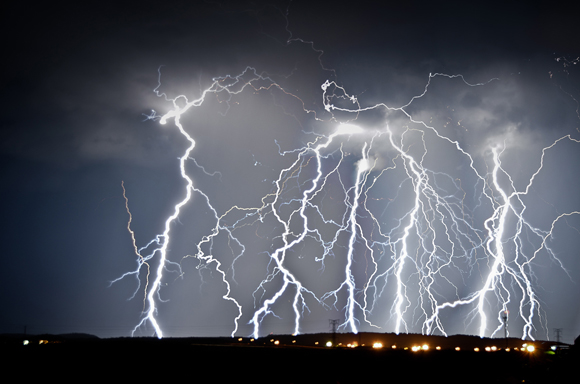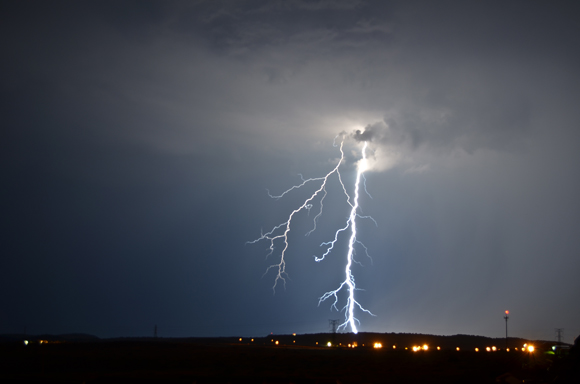Does your insurance cover damage when lightning strikes?

Lightning can leave us in awe at the magnificent powers of nature, but may also leave us with some nasty damages. During last week a very good friend shared some amazing photos of lightning in Bloemfontein and I thought it might be a good idea to investigate whether insurance could provide protection from these forces of nature.
Understanding lightning and damage by lightning
Before placing the spotlight on insurance cover it is also important to understand lightning and the devastating effect of these strikes. The experts tell us that a typical power surge can send 500 to 1,000 volts through any cable, line, or wire that connects your equipment to the outside world. These and other power fluctuations can disrupt software, delete data and destroy circuitry meant to handle a mere 120 volts.
Power surges, also known as transient voltages, can find a variety of routes into (and through) the workplace. As the bolt travels toward earth, it searches for the path of least electrical resistance. On contact, it can travel up to three miles through the ground to find it.
Once in your building, this energy can race through any conductive material: copper electrical wires, data cables, phone lines, and even plumbing and ductwork. It can even jump between those systems in dramatic and extremely dangerous — electrical arcs.
For businesses this will result in downtime, lost income, the expense of replacing equipment – even a fire caused by overloaded power strips and electric panels.
We also need to recognize the risks to all the consumer electronics in our homes. We have computers, sound systems, high-definition televisions, gaming systems and similar electronics at our fingertips in nearly every room of the house – a power surge can have a devastating impact on these electronics and result is significant damage.
It is however not only the power surge that causes damage, but also related damages. There are often flammable materials and boxes of paper stored near main electric panels catching fire…

Insurance
Home and business owners should never simply assume that an insurance policy provides all the necessary cover for damage from lightning strikes. Damage to your equipment isn’t automatically covered by your property insurance policy. Nor will it cover losses due to lost income, spoiled inventory, replacement costs, rush repairs, and more. Specific endorsements need to be added to your insurance coverage, like lightning and power surge protection.
It is always best to check your buildings insurance product and enquire from your insurer and broker about the cover provided. I decided to enquire from South Africa’s largest direct insurer OUTsurance about the cover they provide.
At OUTsurance, damage caused by lightning and fire is part of the standard Contents cover. Loss or damage caused by power surges and dips is also part of the standard contents cover. This relates to personal cover for clients.
With the OUT-and-About product the client will receive cover for items that he takes outside the house. To insure the structure of his building or any permanent fixtures or fittings, the client is advised to also read more about the buildings insurance product.
Prevention and Pro-Active Measures
The insured home and business owner can however do more than pray that there is no damage. There are a few important suggestions to protect both home and business from power surges.
It is always advisable to take preventive measures where possible. Lightning surge protection devices are sometimes useful in curbing or limiting the effects of a power surge and thus preventing or reducing damage or loss.
While they have their place, surge protectors are no replacement for a heavy-duty surge suppressor at your main service panel.
Service panel surge suppressors are designed to deal with large transient voltages as they enter your building, lessening the impact on surge protectors and business equipment down the line. These suppressors must be installed by a licensed electrician and inspected periodically.
Apart from taking out insurance and installing protection devices, it is important to switch off and unplug electrical appliances during a lightning storm.
Conclusion
Never underestimate the power of lightning. Even when insured, you may wish to avoid the time and efforts that go into repairing and replacing valuables and having to submit an insurance claim.
You may also like to protect your claims history from an unnecessary surge in insurance claims!
Do your part to lower insurance rates—and keep loved ones, your home and possessions safe.



